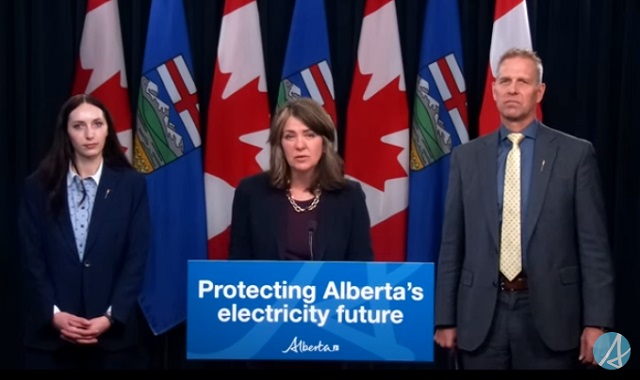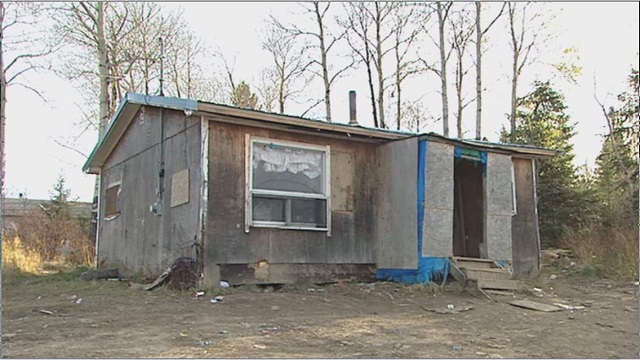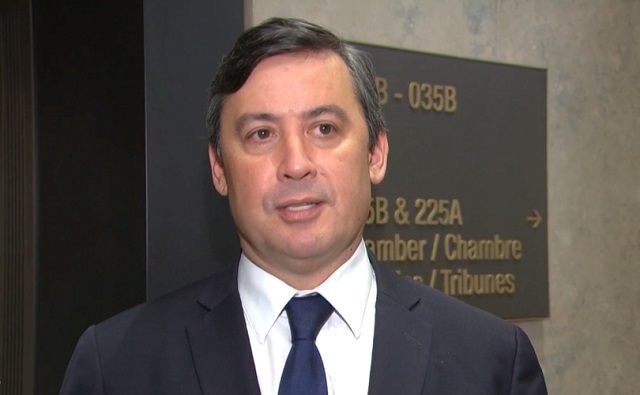Alberta
City of Red Deer responds to the Provincial Budget

From The City of Red Deer
Given Alberta’s continued economic challenges, The City anticipated a drop in Municipal Sustainability Initiative (MSI) funding and has budgeted appropriately. Administration built The City’s proposed capital plan with a reduction in MSI funding.
“This is the austerity budget we were expecting and planned for as a municipality. We are, however, encouraged to see that municipal capital funding will be legislated as The City’s capital plan relies heavily on this source,” Mayor Veer said. “Our budgets are built with community and province building in mind, and this predictable funding source will provide stability in long-term infrastructure planning.”
Municipalities will also see a province-wide reduction of $30 million in grants in place of property taxes paid by the Provincial Government by 2023 compared to the amounts received in 2018. The amount will be reduced by 25 per cent in 2019-2020 with a further reduction of 25 per cent the following year.
In terms of community safety and crime, one of Council’s priorities in their 2019-2022 Strategic Plan, the Government will continue its investment in the Justice Centre and there will be an additional $50 million investment over the next four years in the Alberta Law Enforcement Response Team (ALERT).
“Safety is the top priority for The City of Red Deer and our citizens. The continued development of the new Provincial Justice Centre reinforces our ongoing efforts to enhance safety in our community by strengthening the court’s ability to uphold charges and obtain justice for victims of crime,” said Mayor Tara Veer. “The additional funding for ALERT is a welcome enhanced investment in combating organized and serious crime with the result of creating safer communities for all Albertans.”
To further our commitment to safety and crime reduction, Red Deer is advocating for several new Crown Prosecutors with the previous announcement of 50 Crown Prosecutors across the province. It is also hoped that Red Deer and region will get a number of the 4,000 addictions treatment spaces announced as part of our response to local social issues.
“As a community, we are disappointed in the lack of funding for the expansion of the Red Deer Regional Hospital in this budget,” said Mayor Tara Veer. “However, the opportunity exists for our community to advocate jointly for this expansion and to work with The Province to develop a pragmatic phasing plan for its development.”
Like many other communities, Red Deer continues to experience gaps in social services for mental health and addictions. The City will work with the Provincial Government on these initiatives including the implementation of mental health and addiction services and opioid response strategies. These initiatives align with Council’s priorities in the current Strategic Plan.
“There is still a need for Provincial infrastructure investment in the form of a 24/7 shelter in Red Deer,” said Mayor Veer. “We’ve discussed this need with the Minister of Seniors and Housing and we will be working alongside her in the coming months to convey the scope and needs in Red Deer to ensure it is included in future budgets.”
While it is still critical that Alberta gets its energy to market, the announcement of the reduction in the corporate tax rate has the potential to stimulate private investment and spur economic development in Red Deer in the meantime.
Administration will continue to review the Provincial budget and watch for more details in the coming weeks. The impact on property tax notices will be calculated in April when the approved municipal operating budget is combined with the Provincial Education Requisition and tax rates are set by Red Deer City Council.
Alberta
Province to stop municipalities overcharging on utility bills

Making utility bills more affordableAlberta’s government is taking action to protect Alberta’s ratepayers by introducing legislation to lower and stabilize local access fees. Affordability is a top priority for Alberta’s government, with the cost of utilities being a large focus. By introducing legislation to help reduce the cost of utility bills, the government is continuing to follow through on its commitment to make life more affordable for Albertans. This is in addition to the new short-term measures to prevent spikes in electricity prices and will help ensure long-term affordability for Albertans’ basic household expenses.
Local access fees are functioning as a regressive municipal tax that consumers pay on their utility bills. It is unacceptable for municipalities to be raking in hundreds of millions in surplus revenue off the backs of Alberta’s ratepayers and cause their utility bills to be unpredictable costs by tying their fees to a variable rate. Calgarians paid $240 in local access fees on average in 2023, compared to the $75 on average in Edmonton, thanks to Calgary’s formula relying on a variable rate. This led to $186 million more in fees being collected by the City of Calgary than expected.
To protect Alberta’s ratepayers, the Government of Alberta is introducing the Utilities Affordability Statutes Amendment Act, 2024. If passed, this legislation would promote long-term affordability and predictability for utility bills by prohibiting the use of variable rates when calculating municipalities’ local access fees. Variable rates are highly volatile, which results in wildly fluctuating electricity bills. When municipalities use this rate to calculate their local access fees, it results in higher bills for Albertans and less certainty in families’ budgets. These proposed changes would standardize how municipal fees are calculated across the province, and align with most municipalities’ current formulas.
If passed, the Utilities Affordability Statutes Amendment Act, 2024 would prevent municipalities from attempting to take advantage of Alberta’s ratepayers in the future. It would amend sections of the Electric Utilities Act and Gas Utilities Act to ensure that the Alberta Utilities Commission has stronger regulatory oversight on how these municipal fees are calculated and applied, ensuring Alberta ratepayer’s best interests are protected.
If passed, this legislation would also amend sections of the Alberta Utilities Commission Act, the Electric Utilities Act, Government Organizations Act and the Regulated Rate Option Stability Act to replace the terms “Regulated Rate Option”, “RRO”, and “Regulated Rate Provider” with “Rate of Last Resort” and “Rate of Last Resort Provider” as applicable. Quick facts
Related information |
Alberta
Alberta moves to protect Edmonton park from Trudeau government’s ‘diversity’ plan

From LifeSiteNews
If Trudeau’s National Urban Park Initiative is implemented, Alberta could see its parks, including Edmonton’s River Valley, hijacked by the federal government in the name of ‘sustainability, conservation, equity, diversity, inclusion, and reconciliation.’
Edmonton is working to protect its River Valley from the Trudeau government’s “diversity” park plan.
On April 15, Alberta Legislature passed MLA Brandon Lunty’s private members’ Bill 204 to protect the Edmonton River Valley from Prime Minister Justin Trudeau’s National Urban Park Initiative which would give the federal government power over provincial parks to enforce a variety of quotas related to the “climate” and “diversity.”
“Albertans elected our United Conservative government with a majority mandate to, among other things, protect families and communities from federal overreach and intrusion. That’s exactly what this bill accomplishes,” Lunty said in a press release.
Bill 204, titled the Municipal Government (National Urban Parks) Amendment Act, is a response to the National Urban Park Initiative which would give the Trudeau government jurisdiction over Alberta’s provincial parks.
The Trudeau government’s plan promises to “provide long-lasting benefits to the urban area” by using “sustainability, conservation, equity, diversity, inclusion, and reconciliation.”
If the program is approved, the Edmonton River Valley could be “fully owned by the Federal Government,” which will use the space to advance their values, including addressing the impacts of “climate change” and creating spaces where “diversity is welcomed.”
The plan also promises that equity will be “intentionally advanced” while “respecting indigenous rights” through “reconciliation.”
However, many Edmonton citizens were concerned with the Urban Park Initiative and met with their MLAs to discuss the issue.
Edmonton citizen Sheila Phimester worked with MLA Jackie Lovely to create a petition to prevent the River Valley from becoming federally owned. The petition has received over 5,000 signatures.
“Instead of Edmontonians making decisions about what happens in the park, Ottawa would be making the decisions,” the petition warned.
“Oh, and because it’s the federal government, their ‘priorities’ for these parks are ‘healthier communities’, ‘climate resilience’, ‘reconciliation’, ‘equity’, ‘diversity’, and ‘inclusion,’” it continued.
Already, Trudeau has attempted to assert power over Alberta’s industry by placing “climate” restrictions on their oil and gas production in an attempt to force net-zero regulations on all Canadian provinces, including on electricity generation, by as early as 2035.
However, Alberta Premier Danielle Smith has repeatedly vowed to protect the province from Trudeau’s radical “net zero” push.
In December, Alberta Premier Danielle Smith blasted Trudeau’s Environment Minister Steven Guilbeault’s plan to slash oil and gas emissions by 35 percent to 38 percent below 2019 levels as “unrealistic” and “unconstitutional.”
Trudeau’s current environmental goals are in lockstep with the United Nations’ “2030 Agenda for Sustainable Development” and include phasing out coal-fired power plants, reducing fertilizer usage, and curbing natural gas use over the coming decades.
The reduction and eventual elimination of the use of so-called “fossil fuels” and a transition to unreliable “green” energy has also been pushed by the World Economic Forum (WEF) – the globalist group behind the socialist “Great Reset” agenda – an organization in which Trudeau and some of his cabinet are involved.
In November, after announcing she had “enough” of Trudeau’s extreme environmental rules, Smith said her province had no choice but to assert control over its electricity grid to combat federal overreach by enacting its Sovereignty Act. The Sovereignty Act serves to shield Albertans from future power blackouts due to federal government overreach.
Unlike most provinces in Canada, Alberta’s electricity industry is nearly fully deregulated. However, the government still has the ability to take control of it at a moment’s notice.
-

 Brownstone Institute15 hours ago
Brownstone Institute15 hours agoDeborah Birx Gets Her Close-Up
-

 Jordan Peterson2 days ago
Jordan Peterson2 days agoJordan Peterson slams CBC for only interviewing pro-LGBT doctors about UK report on child ‘sex changes’
-

 Economy2 days ago
Economy2 days agoExtreme Weather and Climate Change
-

 Bruce Dowbiggin2 days ago
Bruce Dowbiggin2 days agoWhy Are Canadian Mayors So Far Left And Out Of Touch?
-

 National2 days ago
National2 days agoCanada’s Governor General slammed for hosting partisan event promoting Trudeau’s ‘hate speech’ bill
-

 Frontier Centre for Public Policy2 days ago
Frontier Centre for Public Policy2 days agoThe Smallwood solution
-

 Alberta2 days ago
Alberta2 days agoDanielle Smith warns arsonists who start wildfires in Alberta that they will be held accountable
-

 International2 days ago
International2 days agoTelegram founder tells Tucker Carlson that US intel agents tried to spy on user messages





